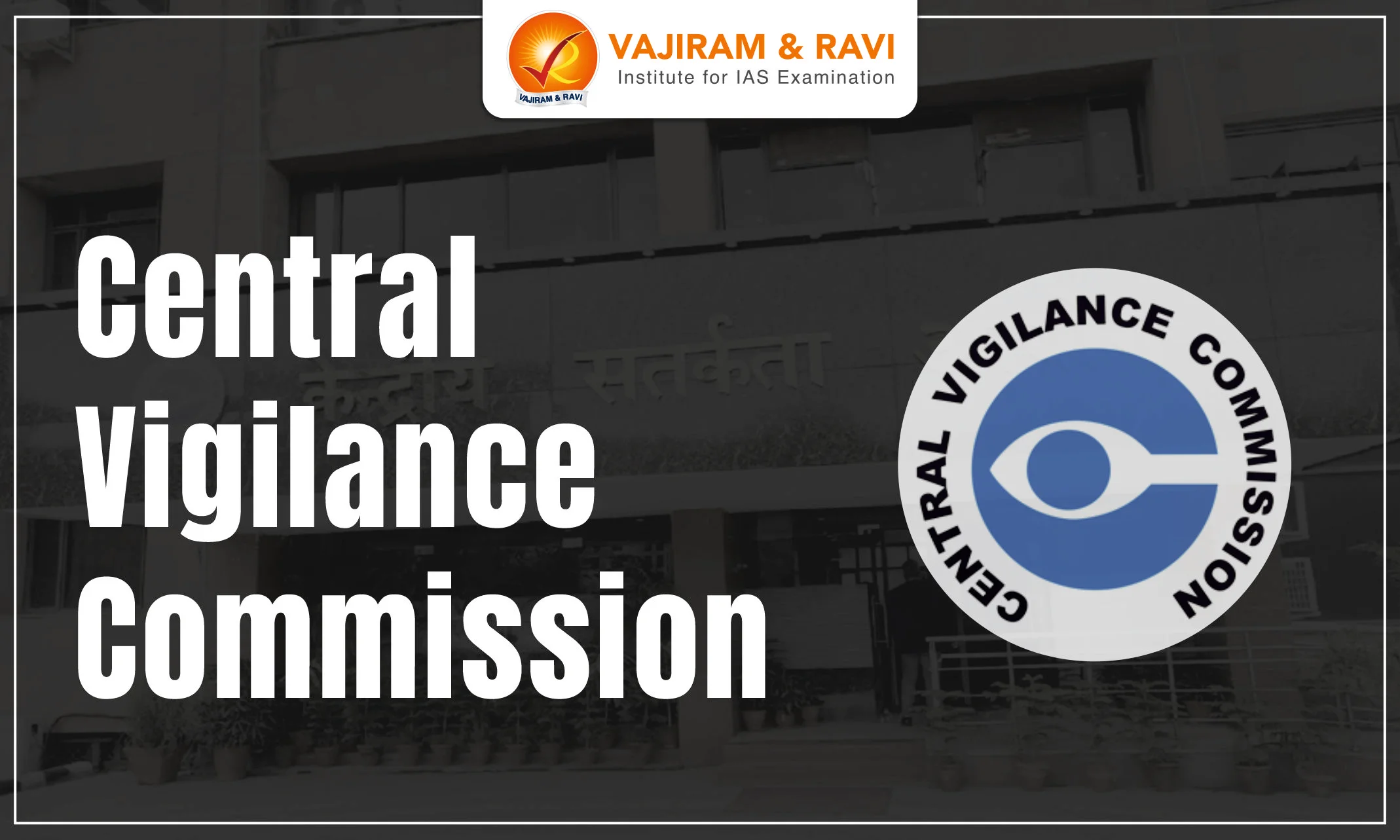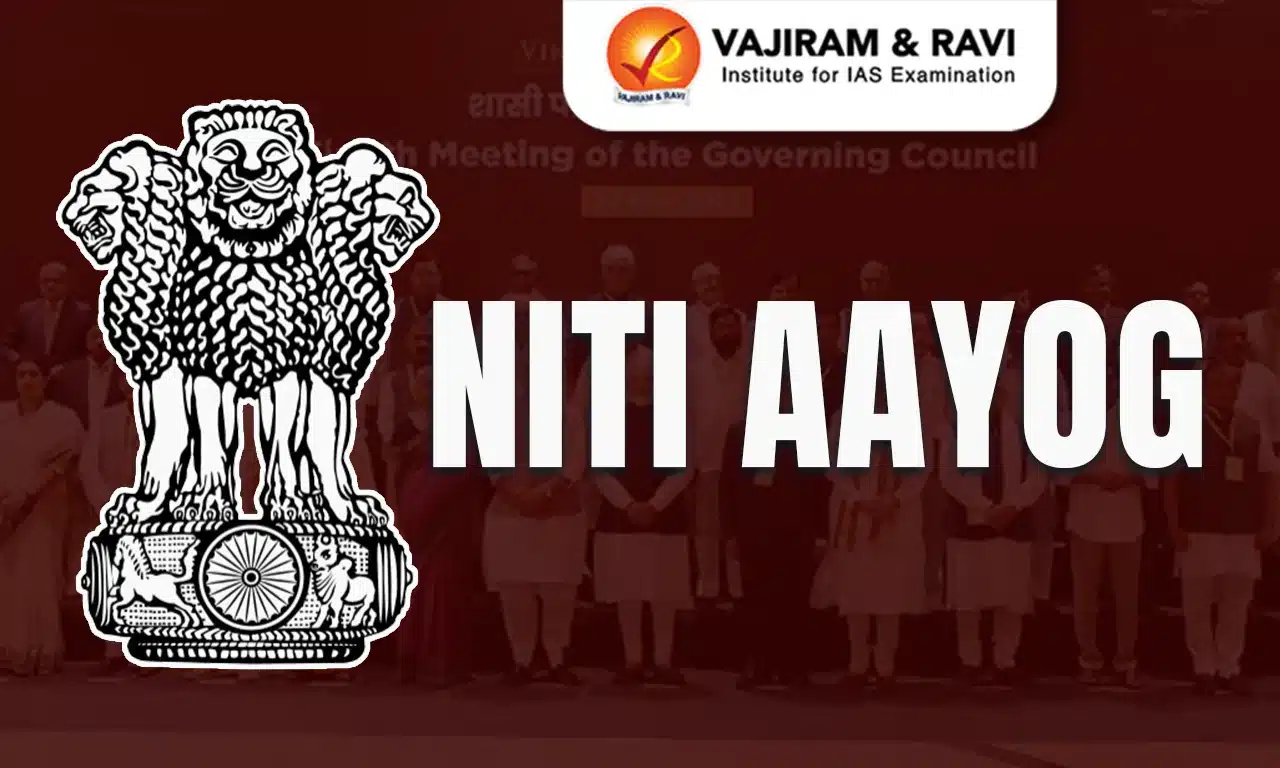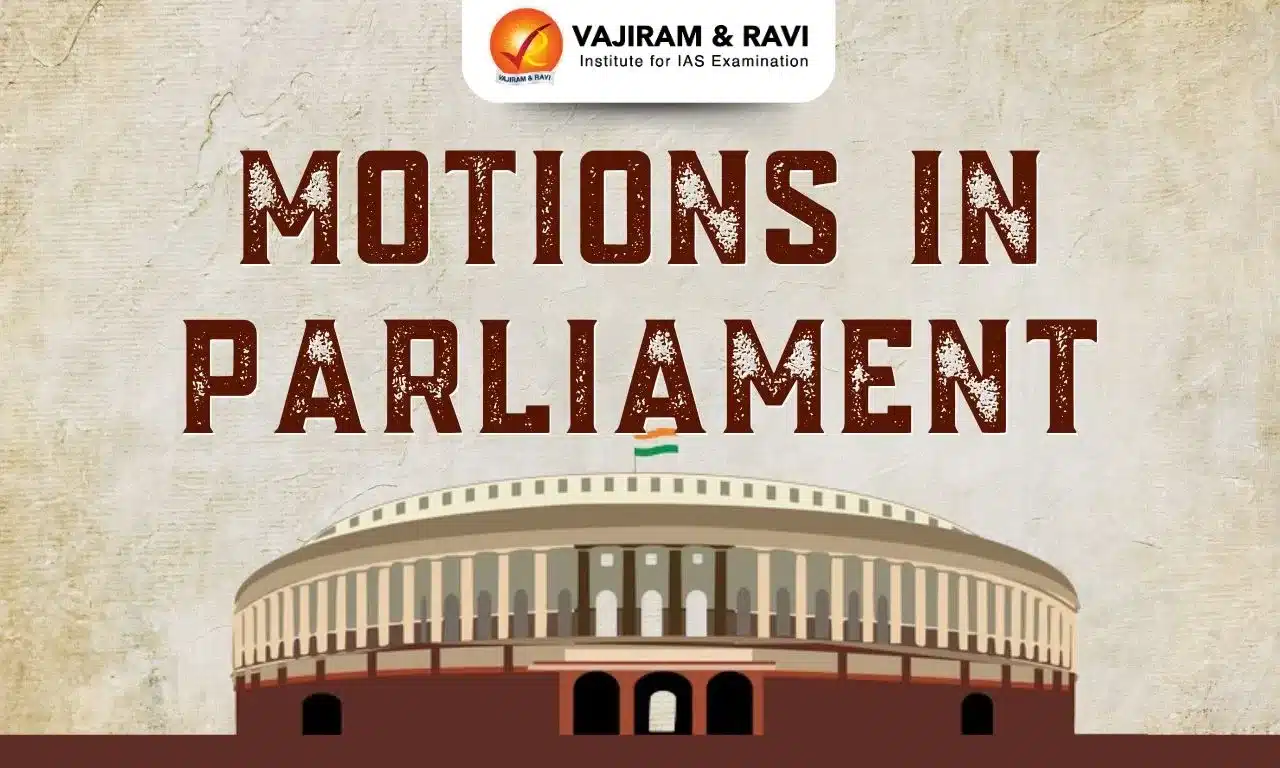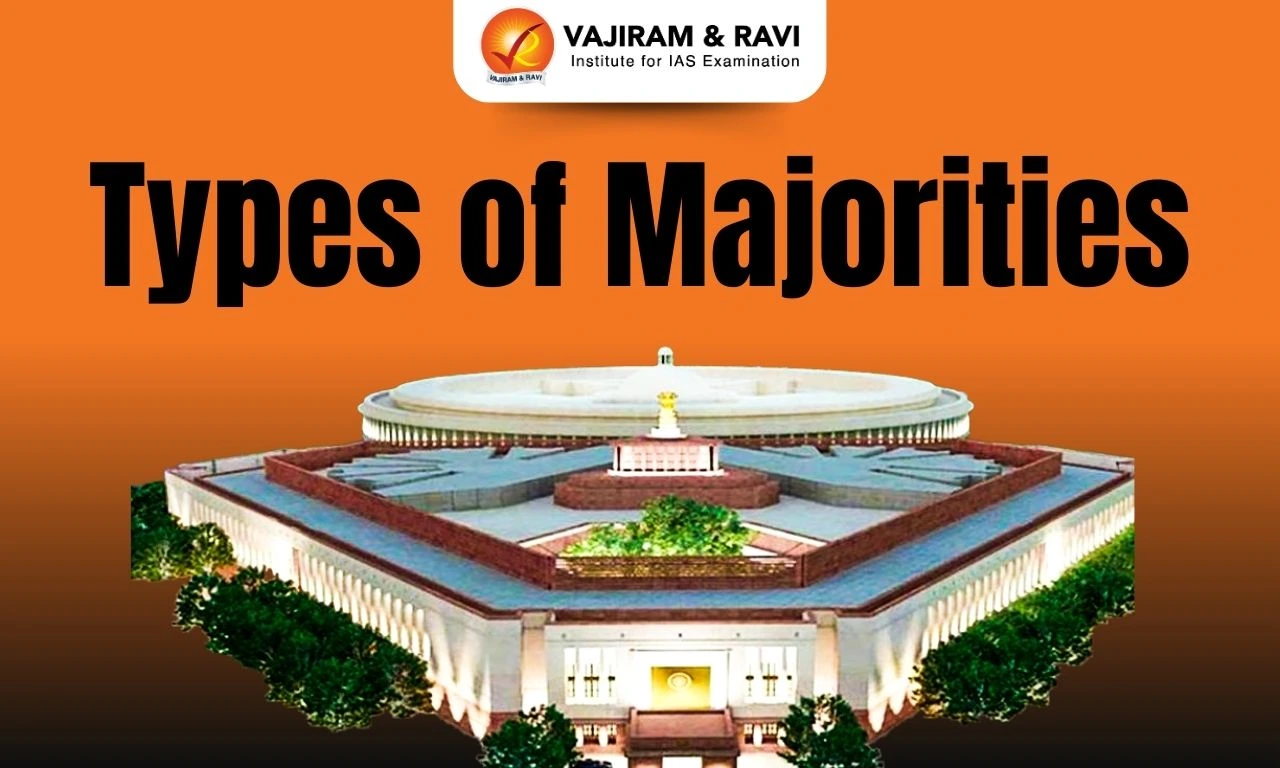What is Central Vigilance Commission (CVC)?
CVC is an apex vigilance institution that exercises superintendence over the vigilance administration of the organizations where the executive powers of the Government of India extends.
- It is an apex Integrity Institution, having complete independence and autonomy in its functions.
- The CVC was set up through the Resolution of the Government of India on the recommendations of the Committee on Prevention of Corruption formed under the Chairmanship of Shri K. Santhanam in 1964.
- It was given statutory status through CVC Act 2003.
- The CVC is not controlled by any Ministry/Department. It is responsible to the Parliament.
What are the significant provisions of the CVC Act 2003?
The significant provisions of the CVC Act, 2003 are
- Composition: CVC is a Multi-member Commission consisting of a Central Vigilance Commissioner (Chairperson) and not more than two Vigilance Commissioners (Members).
- Organization: The CVC has its own Secretariat, the Chief Technical Examiners' Wing (CTE), and a wing of Commissioners for Departmental Inquiries (CDI).
- Appointment: The chairperson and the members are appointed by the President on the recommendations of a Committee consisting of the Prime Minister (Chairperson), the Minister of Home Affairs, and the Leader of the Opposition in the Lok Sabha.
- Term: The term of office of the chairperson and the members is four years from the date on which they enter their office or till they attain the age of 65 years, whichever is earlier.
- Salary and Allowances: The salary, allowances, and other service conditions of the Chief Vigilance Commissioner are similar to those of the Chairman of UPSC, and that of the Vigilance Commissioner are similar to those of the members of UPSC.
- Removal:
- The President can remove the chairperson or any other member from the office under the following circumstances:
- If the member is adjudged as insolvent
- If the Central government holds him responsible for an offense involving moral turpitude or he is convicted for such an offense
- engages during his term of office in any paid employment outside the duties of his office
- If he is declared unfit by reason of infirmity of mind or body, by the President.
- The President can also remove the chairperson or any other member for proved misbehavior or incapacity. In such cases, the President has to refer the matter to the Supreme Court for an enquiry. After the enquiry, if the Supreme Court upholds the cause of removal and advises so, then the President can remove him.
- The President can remove the chairperson or any other member from the office under the following circumstances:
- Powers of Civil Court: It has all the powers of a Civil Court while conducting any inquiry. Its proceedings have judicial character.
- It can ask for information or report from authorities to exercise its mandate relating to vigilance and anti-corruption work.
- Advisory nature: After inquiry, it advises the Central Government or its authorities for further courses of action.
- Where the Central Government or any of its authorities does not agree with the advice of the CVC, it shall communicate the reasons to the CVC.
- Investigations: For investigation work, CVC has to depend on two external sources CBI and Chief Vigilance Officers (CVO).
- Annual Report: It prepares and presents its Annual Report to the President, which is placed before the Parliament.
What are the legislations pertaining to CVC?
Various legislations pertaining to CVC are:
- Prevention of Corruption Act,1988: Under the Act, CVC oversees corruption investigations in government agencies. It has the authority to recommend matters to the Central Vigilance Officer (CVO) in each department or to the Central Bureau of Investigation (CBI).
- CVC Act 2003: The Act provides for the jurisdiction of the CVC with regard to vigilance administration.
- Lokpal and Lokayukta Act 2013: Under the Act, the CVC has been empowered to conduct a preliminary inquiry into complaints referred by Lokpal in respect of officers and officials of Groups A, B, C, and D
- Whistleblower Protection Act 2014: It provides for the protection of the identity of the whistleblowers.
- Under the Act, a person can make a public interest disclosure on corruption before the CVC.
What are the powers and functions of CVC?
Being an apex vigilance institution, CVC performs the following functions:
Powers and functions under the CVC Act, 2003
- Superintendence:
- It exercises superintendence over the functioning of the DPSE (CBI) insofar as it relates to the investigation of offenses under the Prevention of Corruption Act, 1988
- It exercises superintendence over the vigilance administrations of the various Central Government Ministries, Departments & Organisations of the Central Government
- Monitoring under the Prevention of Corruption Act,1988:
- It reviews the progress of Investigations conducted by the Delhi Special Police Establishment (DSPE) into offenses alleged to have been committed under the Prevention of Corruption Act, 1988.
- It reviews the progress of applications pending with the competent authorities for sanction of prosecution under the Prevention of Corruption Act, 1988
- Inquiry on reference by Central Government: It inquires or causes an inquiry or investigation to be made on a reference by the Central Government
- Recommending Disciplinary actions: It recommends disciplinary actions against higher officials of Group A, B, All India services, etc.
- Power to call for information: The Commission may call for reports, returns and statements from the Central Government or corporations established by or under any Central Act, Government companies, societies and other local authorities owned or controlled by that Government so as to enable it to exercise general supervision over the vigilance and anti-corruption work.
Powers and functions under the Lokpal and Lokayukta Act, 2013
- Appointment of Director of Prosecution by the Central Government under the Directorate of Prosecution in CBI to be done on the recommendation of the CVC.
- A selection committee headed by the Central Vigilance Commissioner that includes the two vigilance commissioners, secretaries of M/o Home Affairs, and D/o Personnel and Training to recommend officers to the post of the level of Superintendent of Police and above in the CBI.
- CVC has been empowered to conduct a preliminary inquiry into complaints referred by Lokpal in respect of officers and officials of Groups A, B, C, and D.
Powers and functions under the Whistleblower Protection Act 2014
- Under the act CVC is one of the competent authorities where a person can make a public interest disclosure on corruption.
What are some of the limitations of CVC?
- Advisory: It is only an advisory body. Central government departments may or may not pay heed to its advice.
- Lack of resources: It does not have adequate resources to cater to the number of complaints it receives. It has a small setup with limited staff strength.
- Limited power: It cannot on its own direct CBI to initiate inquiries against any officer of the level of Joint Secretary and above. The concerned department has to give permission for the same.
- Lack of power to deal with criminal cases: It does not have power to register criminal cases. It can deal only with vigilance or disciplinary cases.
- Lack of Transparency in Appointment: Appointments to CVC are indirectly under the control of the central government even though the leader of the Opposition (in Lok Sabha) is a member of the Committee to select CVC and VCs.
The powers of the CVC with respect to its mandate, the financial independence, and increase in the implementation of otherwise just the advisory role of the CVC needs to be further strengthened. This will help in reaching the goal of effective governance without corruption.
Last updated on February, 2026
→ UPSC Notification 2026 is now out on the official website at upsconline.nic.in.
→ UPSC IFoS Notification 2026 is now out on the official website at upsconline.nic.in.
→ UPSC Calendar 2026 has been released.
→ UPSC Final Result 2025 is expected to be released soon.
→ Check out the latest UPSC Syllabus 2026 here.
→ Join Vajiram & Ravi’s Interview Guidance Programme for expert help to crack your final UPSC stage.
→ UPSC Mains Result 2025 is now out.
→ UPSC Prelims 2026 will be conducted on 24th May, 2026 & UPSC Mains 2026 will be conducted on 21st August 2026.
→ The UPSC Selection Process is of 3 stages-Prelims, Mains and Interview.
→ Prepare effectively with Vajiram & Ravi’s UPSC Prelims Test Series 2026 featuring full-length mock tests, detailed solutions, and performance analysis.
→ Enroll in Vajiram & Ravi’s UPSC Mains Test Series 2026 for structured answer writing practice, expert evaluation, and exam-oriented feedback.
→ Join Vajiram & Ravi’s Best UPSC Mentorship Program for personalized guidance, strategy planning, and one-to-one support from experienced mentors.
→ Check UPSC Marksheet 2024 Here.
→ UPSC Toppers List 2024 is released now. Shakti Dubey is UPSC AIR 1 2024 Topper.
→ Also check Best UPSC Coaching in India
Central Vigilance Commission FAQs
Q1. What is Integrity Pack?+
Q2. What is the jurisdiction of CVC under the CVC Act, 2003?+














